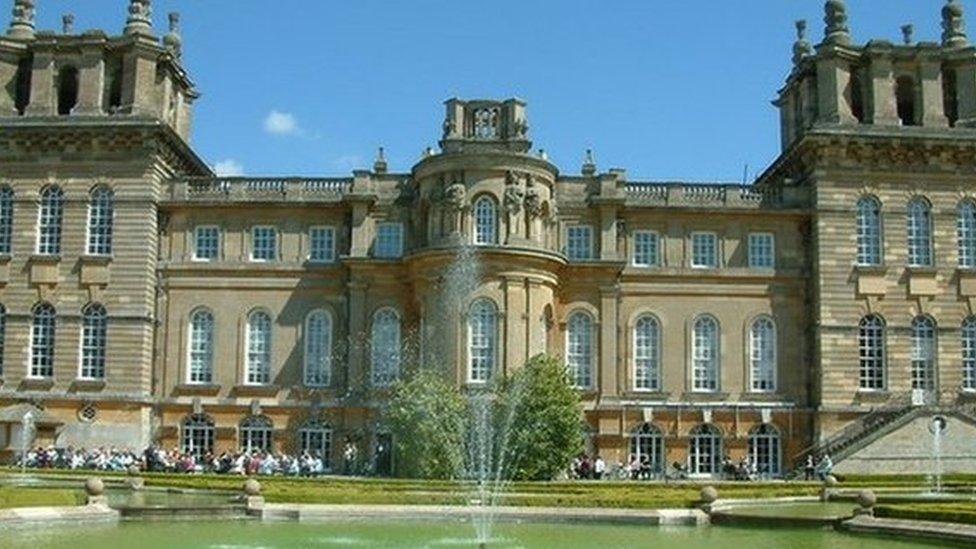Churchill's birthplace Blenheim Palace awarded charity status
- Published
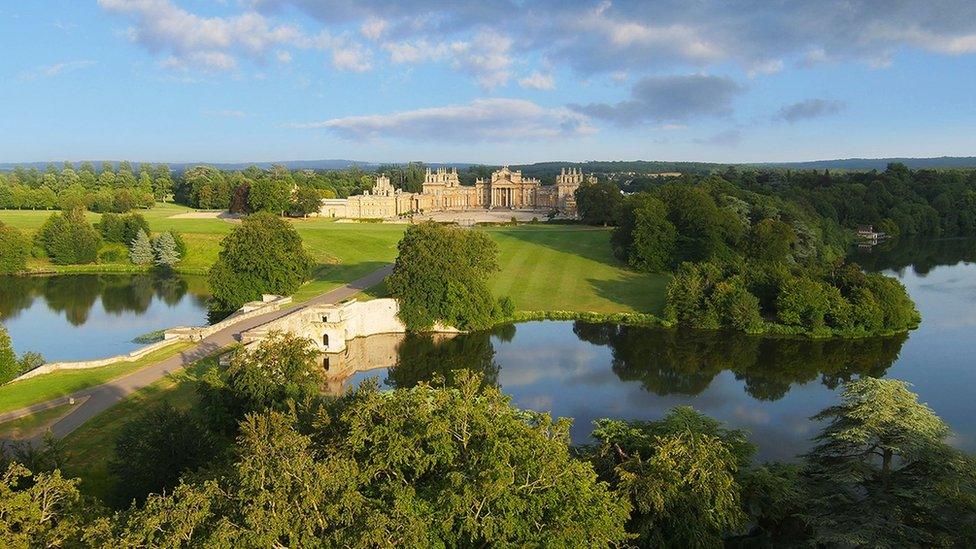
The palace's new status will enable it to apply for restoration grants
Blenheim Palace, the birthplace of Sir Winston Churchill, has become a charity.
The stately home in Woodstock, Oxfordshire, was built in the 18th Century.
Its owners say the new status means "critical" restoration works can now be carried out at the site.
Chief executive Dominic Hare said it is "in need of constant care and attention to help protect and preserve... for generations to enjoy".
He added: "At the moment we are undertaking a £350,000 programme of restoration on the historic North Step entrance to the Palace and this is just a small part of the annual investment required to maintain both the palace itself and more than 2,000 acres of parkland.
"By establishing ourselves as a charitable organisation we are hopeful we can provide the security to safeguard this globally important heritage site for the future."
The new status means Blenheim Palace can operate a Gift Aid scheme to claim back income tax on donations made by UK taxpayers, and apply for grants to support its conservation efforts.
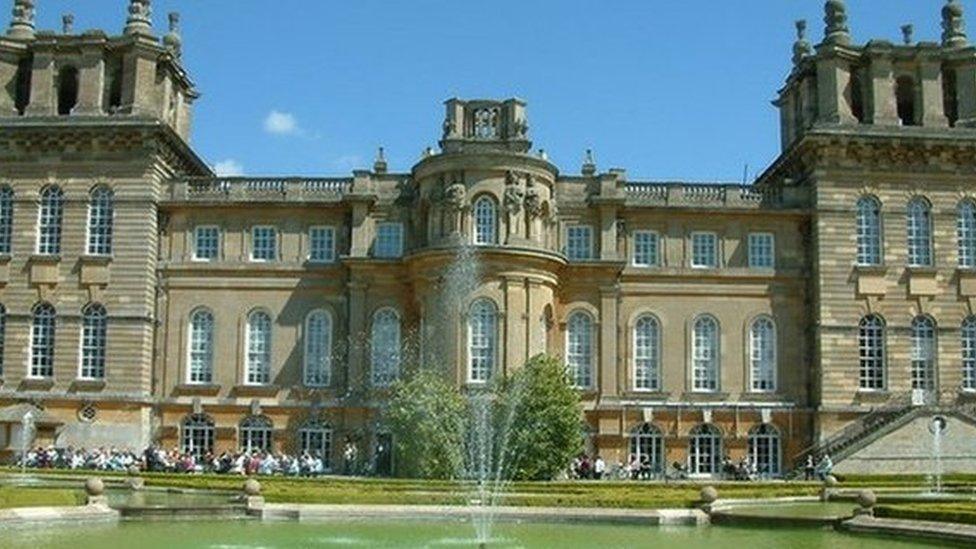
Sir Winston Churchill was born at the palace in 1874
The house, which stands in 2,000 acres of parkland, has 187 rooms, more than Buckingham Palace and Windsor Castle.
Queen Anne financed its construction to celebrate the First Duke of Marlborough's triumph at the 1704 Battle of Blenheim.
Sir Winston Churchill was born at the palace in 1874, proposed to his wife there in 1908, and was buried in the nearby cemetery of St Martin's Church in Bladon.
It opened to the general public in 1950, and has also raised money by being a popular site for filmmakers, featuring in the James Bond film Spectre, Mission: Impossible - Rogue Nation, Cinderella, and the upcoming Transformers film.
Earlier this week plans to build 300 homes on fields owned by the palace were approved, despite local opposition.
Developers said the scheme would help pay for the upkeep of the Unesco World Heritage site.
- Published30 October 2016
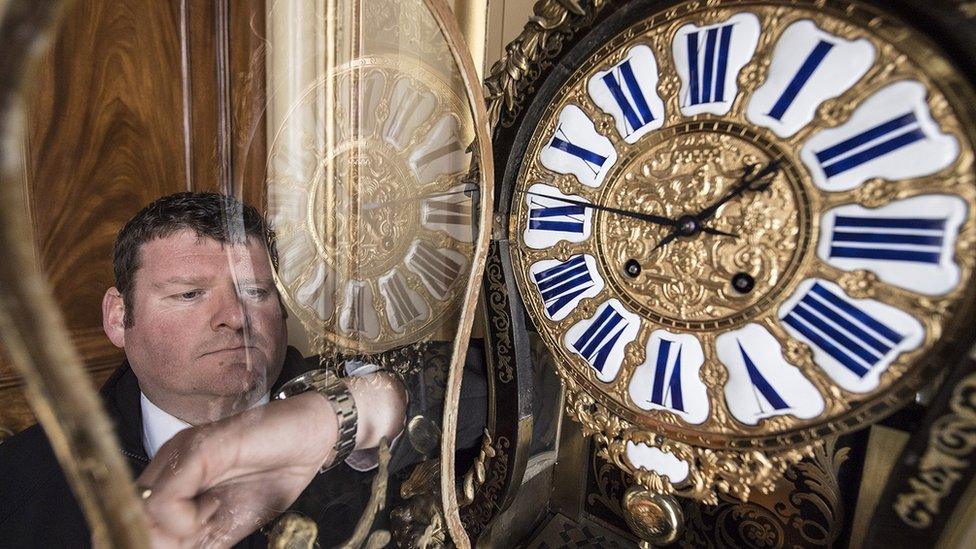
- Published23 September 2016
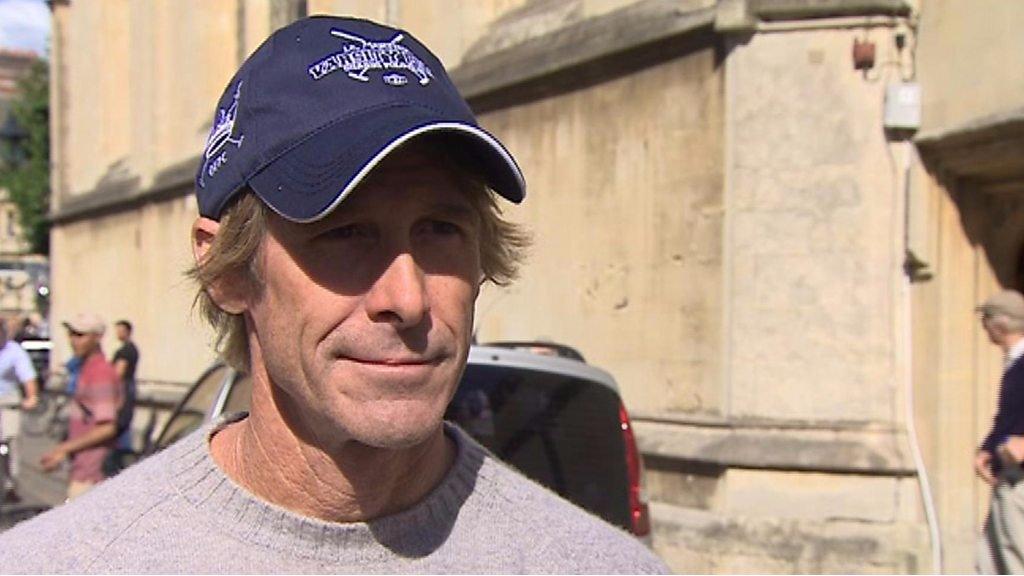
- Published3 August 2016
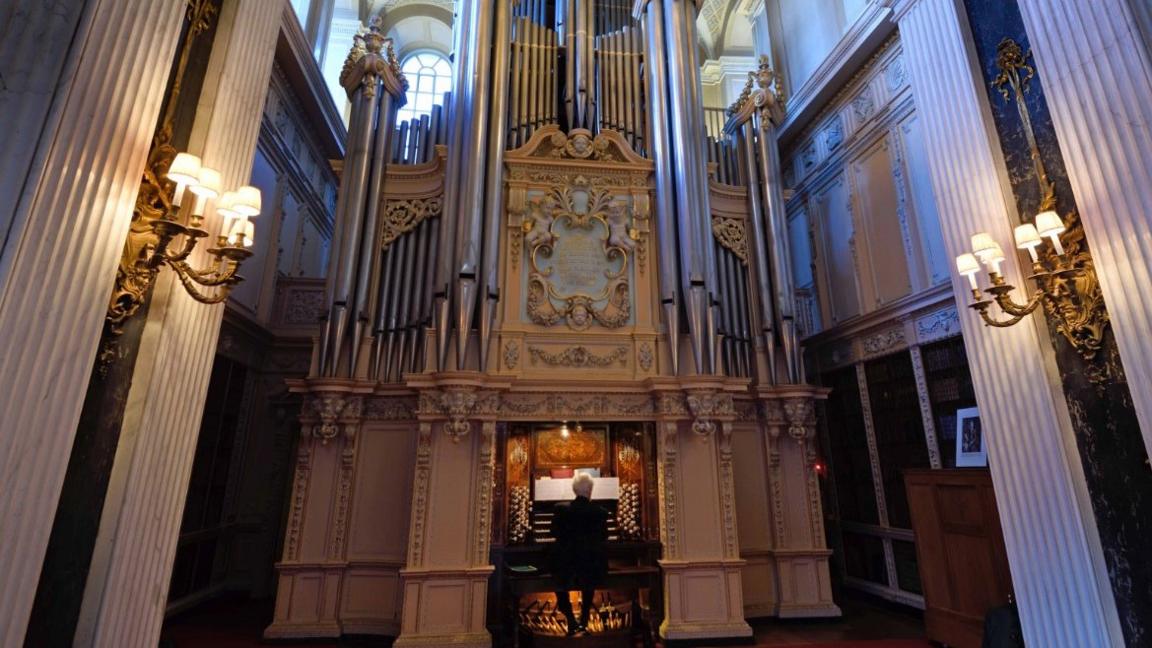
- Published22 January 2016
